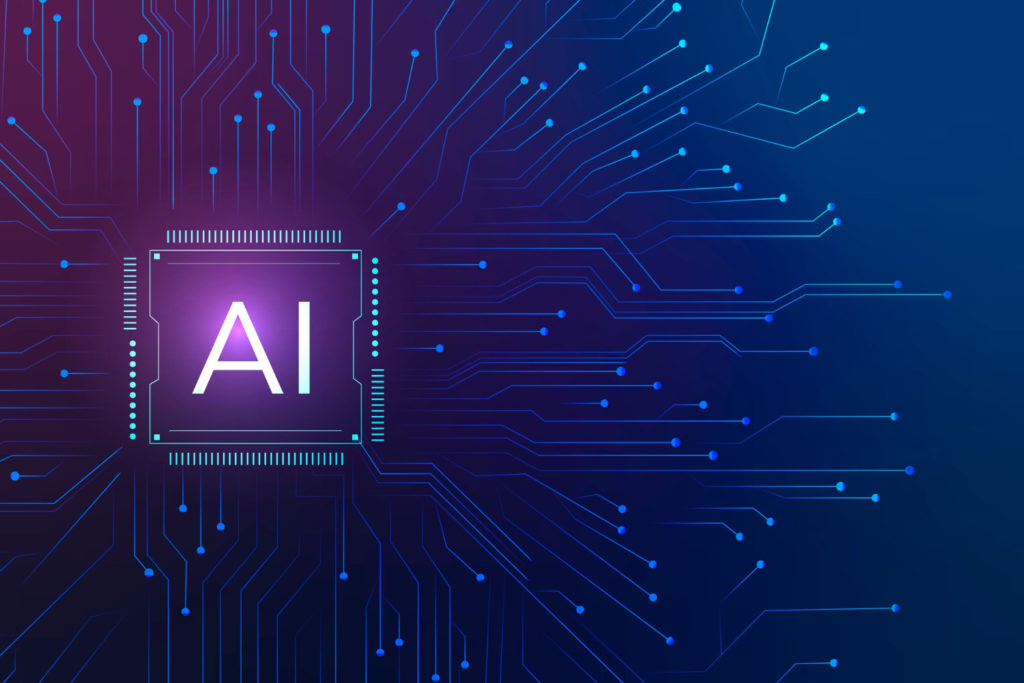In the rapidly evolving landscape of artificial intelligence (AI), the intersection between groundbreaking innovation and the enduring principles of humanity has never been more critical. As AI technologies become increasingly integrated into every facet of our lives, the urgency to address ethical concerns grows.
This article delves into the concept of Ethical AI, underscoring the necessity of aligning AI development with humanity’s core values. It highlights the importance of a balanced approach—where technological advancements do not overshadow ethical considerations, ensuring AI serves as a benevolent force in society.
Understanding Ethical AI

In the realm of technological advancement, ‘Ethical AI’ has emerged as a pivotal concept. It refers to the development and implementation of AI systems in a manner that respects human rights, dignity, diversity, and the values of democracy. Ethical AI is not just about preventing harm; it’s about ensuring that AI technology contributes positively to society, enhancing human capabilities without replacing or diminishing human values.
Why does Ethical AI matter?
The answer lies in the transformative power of AI. From healthcare to finance, AI is reshaping industries and daily life. However, this power comes with responsibilities. Without ethical guidelines, AI can perpetuate biases, invade privacy, and make unaccountable decisions. Ethical AI ensures that the technology we embrace does not undermine our societal and moral foundations but instead works alongside them.
The perils of neglecting ethical considerations in AI are vast. Bias in AI algorithms can lead to unfair decision-making processes, affecting everything from job prospects to judicial sentencing. Privacy violations are another concern, as AI can process personal data at an unprecedented scale. Ignoring ethical AI principles risks creating a world where technology controls, rather than serves, humanity.
The Core Values in Ethical AI
Transparency
One of the cornerstones of Ethical AI is transparency. This involves making AI systems’ decision-making processes understandable and explainable to users and stakeholders. Transparent AI fosters trust and allows users to comprehend how and why certain AI-driven decisions are made.
Accountability
Accountability in AI ensures that there is clarity about who is responsible for the behavior of AI systems. This includes not just the developers and operators of AI systems but also those who deploy them in real-world scenarios. Establishing clear lines of accountability is crucial in addressing and rectifying any harm caused by AI decisions.
Fairness
AI must be developed with an inherent commitment to fairness. This means creating algorithms that do not embed or amplify biases and ensuring that AI systems do not discriminate against any individual or group. Fairness in AI involves continuous efforts to detect and mitigate biases, ensuring equitable outcomes for all.
Privacy
In an age where data is a valuable commodity, protecting individual privacy in AI systems is paramount. Ethical AI entails stringent measures to secure personal data and use it responsibly. This not only involves compliance with data protection laws but also building AI systems that respect user consent and data minimization principles.
Challenges in Implementing Ethical AI
The implementation of Ethical AI is fraught with complex dilemmas. For instance, an AI system designed for predictive policing might reduce crime but also risks profiling certain communities. Balancing the benefits of AI with ethical concerns requires nuanced understanding and constant evaluation.
A significant challenge is maintaining the pace of innovation while adhering to ethical standards. Often, the rush to release new AI technologies outpaces the development of ethical guidelines, leading to potential risks and public backlash. Striking a balance is crucial for sustainable and responsible AI development.
The diverse ethical standards across different cultures and countries add another layer of complexity. What is considered ethical in one region may be contentious in another. This diversity requires a flexible approach to Ethical AI, one that can adapt to various ethical frameworks while maintaining core principles.
Ethical AI in Practice
There are numerous instances where Ethical AI has been successfully implemented. For example, some AI systems in healthcare have been designed to provide unbiased medical diagnoses, improving patient outcomes regardless of demographic factors. These success stories serve as benchmarks for future AI applications.
Governments and international bodies play a pivotal role in promoting Ethical AI. By establishing regulations and guidelines, they can ensure that AI development aligns with societal values. Initiatives like the European Union’s Ethics Guidelines for Trustworthy AI are steps in this direction.
The development of Ethical AI is not solely the responsibility of tech developers. It requires collaboration among ethicists, policymakers, and the public. Engaging diverse voices in the AI development process ensures that multiple perspectives are considered, leading to more robust and ethically sound AI systems.
Raising awareness about the importance of Ethical AI is essential. Educational programs aimed at both AI professionals and the general public can foster an understanding of ethical considerations in AI. An informed society is better equipped to advocate for and engage with Ethical AI.
The Future Landscape of Ethical AI

As we navigate through 2023, the horizon of artificial intelligence (AI) is not just expanding; it’s being redefined. AI, once a field of speculative fiction, is now a tangible part of our everyday lives, influencing everything from how we receive medical care to how we protect our digital identities. The future of Ethical AI, a concept that marries cutting-edge technology with moral and ethical considerations, is shaping up to be both intriguing and complex.
One of the most significant trends in Ethical AI is the focus on removing biases from machine learning models. The importance of this cannot be overstated. Imagine a world where AI systems, uninfluenced by human prejudices, make decisions about loans, medical treatments, and job recruitments.
This is not just a matter of fairness; it’s about building a future where trust in AI systems is rooted in their ability to make objective and equitable decisions. Businesses and organizations are now investing in data augmentation, model calibration, and fairness metrics, aiming to ensure that AI decisions are devoid of discrimination and favoritism. This pursuit of bias removal is not just a technical challenge but a moral imperative, ensuring that AI systems are fair for all individuals.
Another crucial aspect shaping the future of Ethical AI is the development of Explainable AI (XAI). As AI systems become more complex and integral to critical decision-making, particularly in healthcare, the need for transparency is paramount. XAI strives to make the workings of AI algorithms understandable to humans.
This transparency is not just about satisfying curiosity; it’s about accountability and trust. In healthcare, for example, where AI is increasingly used for diagnostics and patient care, the ability to explain decisions made by AI can significantly enhance patient trust and care outcomes. It ensures that AI systems are not just black boxes but entities that can be questioned, understood, and improved upon.
The environmental impact of AI is another area of growing concern. The computational power required to train large AI models results in a significant carbon footprint. As AI becomes more widespread, its environmental impact scales up. This raises ethical questions about sustainability and the responsibility of AI developers and users to mitigate these effects. The future of Ethical AI will need to address these concerns, ensuring that AI’s advancements do not come at the cost of environmental degradation.
Compliance and ethics expectations around AI are strengthening. As AI permeates more areas of our lives, questions about data privacy, security, and the ethical use of AI become more pressing. Users and regulators are increasingly demanding transparency in how AI systems collect and use data. This push for transparency extends to AI model training processes and data governance. Companies like OpenAI are making efforts to delineate their methodologies and practices in this regard, setting a precedent for the industry.
The democratization of AI is another trend that’s reshaping the landscape. Low-code/no-code AI tools are making AI accessible to non-technical users, bridging the gap caused by the tech talent shortage. This democratization is crucial for expanding the benefits of AI across various sectors, from small businesses to larger corporations.
Conclusion:
In conclusion, Ethical AI represents a dynamic and ongoing journey rather than a fixed destination. It’s about constantly balancing the scales between innovative AI solutions and the core values that define our humanity. As we continue to integrate AI into the fabric of society, let us embrace this journey with vigilance, ensuring that AI evolves not just with computational intelligence, but with a moral compass guiding its path. This journey is one we must embark on collectively, shaping a future where technology and ethics coexist in harmony.
Related Content
- Five things you need to know about the EU’s new AI Act” from MIT Technology Review
- We’re failing at the ethics of AI. Here’s how we make real impact” from the World Economic Forum
- A look at AI’s role in revolutionizing medical diagnostics.
- Exploring ChatGPT’s potential in following depression treatment standards.
